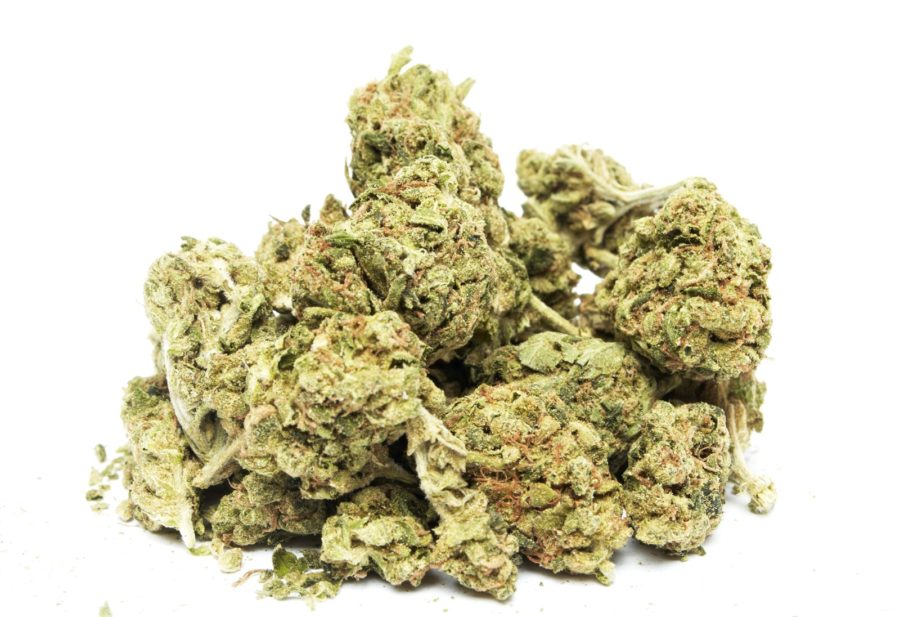ALS stands for amyotrophic lateral sclerosis, also known as Lou Gehrig’s Disease. A disease of the nervous system, ALS gradually causes increasing muscle weakness and muscle spasticity (stiffness), which can become extremely uncomfortable for the patient. Unfortunately, as of 2017, Rilutek (riluzole) remains the only FDA-approved prescription medication for ALS, which leaves patients who respond poorly to Rilutek, or who see limited benefits from using Rilutek, with essentially no prescription alternatives. For ALS patients who have seen limited relief from Rilutek and are looking for ways to enhance their existing treatment plan, medical marijuana may be able to provide additional relief gently, effectively, rapidly, and legally – typically with minimal side-effects.
If you or one of your loved ones has been diagnosed with ALS, is dissatisfied with their existing care plan, and is a Massachusetts resident age 18 or older, it may be appropriate to incorporate medical marijuana (Cannabis) into the current treatment regimen. In studies about treating amyotrophic lateral sclerosis with medical marijuana, numerous ALS patients have reported decreased muscle spasticity, reduced pain, reduced drooling, and improved mood and appetite while using Cannabis therapeutically.
To learn more about how ALS patients in Massachusetts can benefit from medical marijuana as a supplementary therapy, contact Inhale MD at (617) 477-8886 for a confidential consultation.
Is ALS (Amyotrophic Lateral Sclerosis) a Qualifying Condition in MA?

In 2012, Massachusetts voted in favor of legislation to legalize medical marijuana for patients with certain medical conditions, which are called “qualifying conditions.” ALS is currently listed as a qualifying condition under the Massachusetts medical marijuana law, which means that ALS patients age 18 or older can obtain a prescription for medical Cannabis after being diagnosed and receiving a diagnostic test and/or expert opinion from his or her treating physician. Under Section 2(C) of the 2012 Massachusetts Cannabis law, which is called the Act for the Humanitarian Medical Use of Marijuana, ALS is legally defined as a “debilitating medical condition,” or qualifying condition.
Marijuana for Muscle Relaxation and Pain Relief in ALS Patients
As noted above, peer-reviewed medical research has revealed Cannabis to be an effective, therapeutic care option for patients who have been diagnosed with ALS. Here are a few examples:
- 2004, the American Journal of Hospice and Palliative Care: “[R]esults indicate that [C]annabis may be moderately effective at reducing symptoms of appetite loss, depression, pain, spasticity, and drooling… The longest relief was reported for depression…”
- 2007, Dialogues in Clinical Neuroscience: “Many effects of marijuana may be applicable to the management of ALS. These include analgesia, muscle relaxation, bronchodilation, saliva reduction, appetite stimulation, and sleep induction. In addition, its strong antioxidative and neuroprotective effects may prolong neuronal cell survival.”
- 2015, Neurologic Clinics: “There is now good animal based evidence that that cannabinoids are capable of slowing disease progression of ALS in mice… In a survey of 131 patients with ALS, those who were able to obtain [C]annabis found it preferable to prescription medication in managing their symptoms… [T]here could be a potential dual role of [C]annabis for both clinical symptom management and a positive disease-modifying effect.”
In particular, the latter study goes into extensive detail discussing the therapeutic effects of Cannabis for ALS management, making the following statements:
- “The cannabinoids found in [C]annabis have many pharmacological mechanisms of action that can be immediately useful to help manage clinical symptoms in ALS. For example, cannabinoids been shown to produce an anti-inflammatory effect…”
- “In addition to pain, spasticity is also a major problem for patients with ALS. Cannabis has an inhibitory effect via augmentation of gamma-amino-butyric acid (GABA) pathways in the central nervous system.”
- “Patients with ALS… usually have difficulty controlling and swallowing the saliva that is normally present in the oral cavity. Cannabis is a potent anti-salivary compound that swiftly dries the oral cavity and upper airway, potentially reducing the risk for aspiration pneumonia and increasing patient comfort.”
Why Does Marijuana Work to Reduce Symptoms of ALS?

The medical data is clear and extensive – but what is the mechanism behind it? In a word, why does marijuana seem to help alleviate certain effects of amyotrophic lateral sclerosis? To understand the answer, you need to have some basic knowledge about cannabinoids.
When you have a headache, you can take a Tylenol or Advil for relief. These drugs work because they contain, respectively, chemical compounds called acetaminophen and ibuprofen: in short, active ingredients. Marijuana has its own set of chemical compounds that function as active ingredients: cannabinoids. So far, scientists have identified approximately 85 different cannabinoids, one of which you might already know about: THC (Tetrahydrocannabinol).
Here’s where things get more interesting. Your body actually produces its own cannabinoids, which are called “endocannabinoids” because they are made within your body. (In medical language, the prefix “endo-” means “within” or “inward.”) No, your body doesn’t manufacture THC; but it does produce similar substances, such as Anandamide (AEA) and 2-Arachidonoylglycerol (2-AG).
AEA, 2-AG, and other endocannabinoids interact with structures called “receptors.” There are two types of receptors that endocannabinoids stimulate: CB1 receptors, and CB2 receptors. During this process, signals are sent to and from your brain, which has a major effect on the way you experience pain, emotions, appetite, memory, and other functions or sensations. When you use Cannabis, THC and other cannabinoids stimulate your CB1 and CB2 receptors. This disrupts the way your endocannabinoid system normally functions, swiftly and gently producing effects such as increased appetite, elevated mood, and decreased perception of physical pain.
These effects are temporary, and only in extremely rare cases do they produce serious or long-lasting harm. The vast majority of ALS patients report that side-effects are mild and tolerable.
Boston, MA Medical Marijuana Doctor for Lou Gehrig’s Disease
While Cannabis is generally safe for use by adults, it is important to be monitored by an experienced medical Cannabis doctor in order to find the optimal method, frequency, and size of your dose. This is particularly true if you have never used Cannabis, and do not know what to expect or how to administer your medication.
Unfortunately, marijuana dispensaries in Massachusetts are operated by salespeople rather than pharmacists. For this reason, it is vital that patients have a medical authority to whom they can turn for trustworthy, science-based guidance. At Inhale MD, our mission is to ensure that patients are educated and informed so that can use their medicine safely and efficiently.
If you or a loved one has been diagnosed with Lou Gehrig’s Disease, medical marijuana may be a beneficial treatment option. To learn more, contact Inhale MD at (617) 477-8886.
